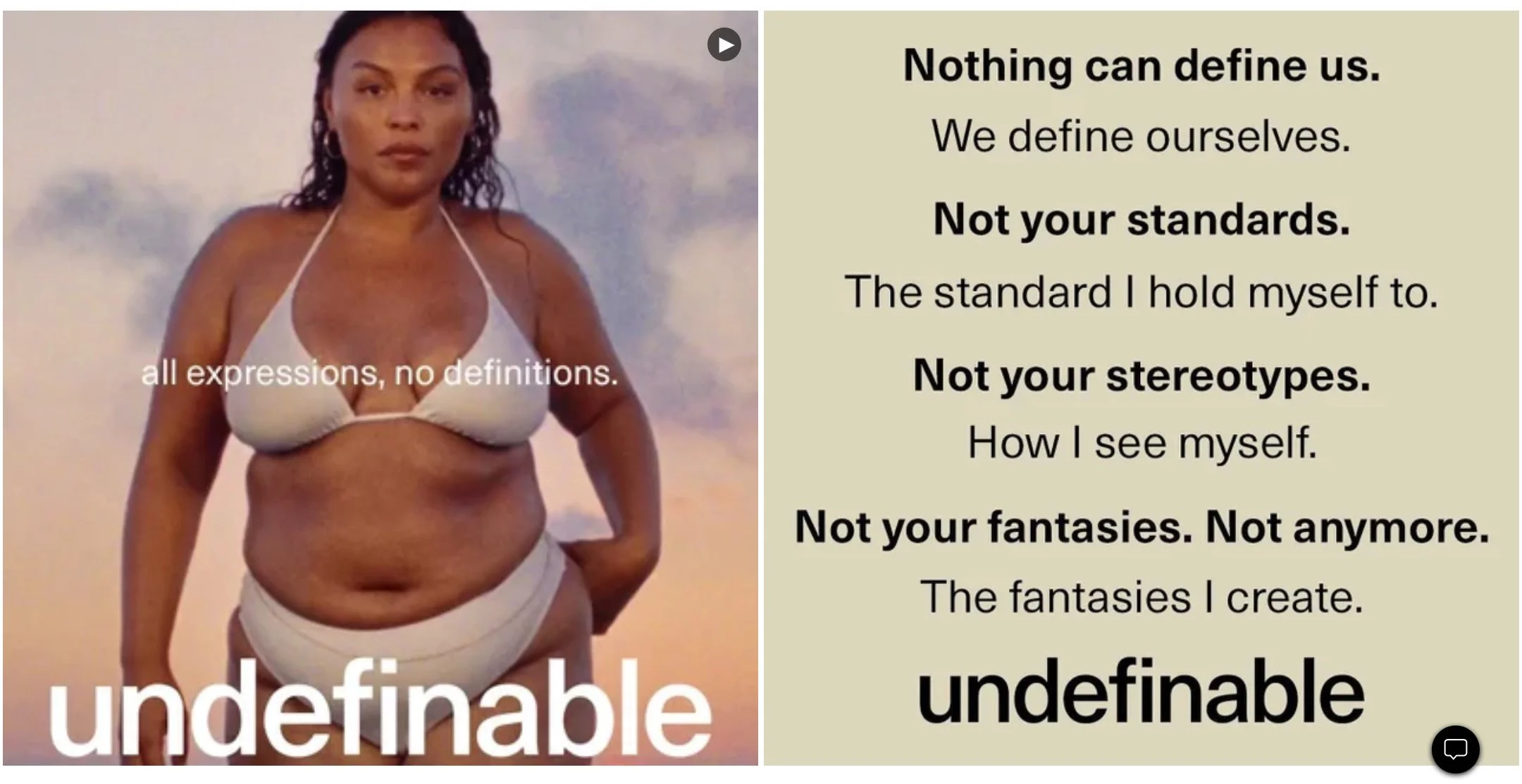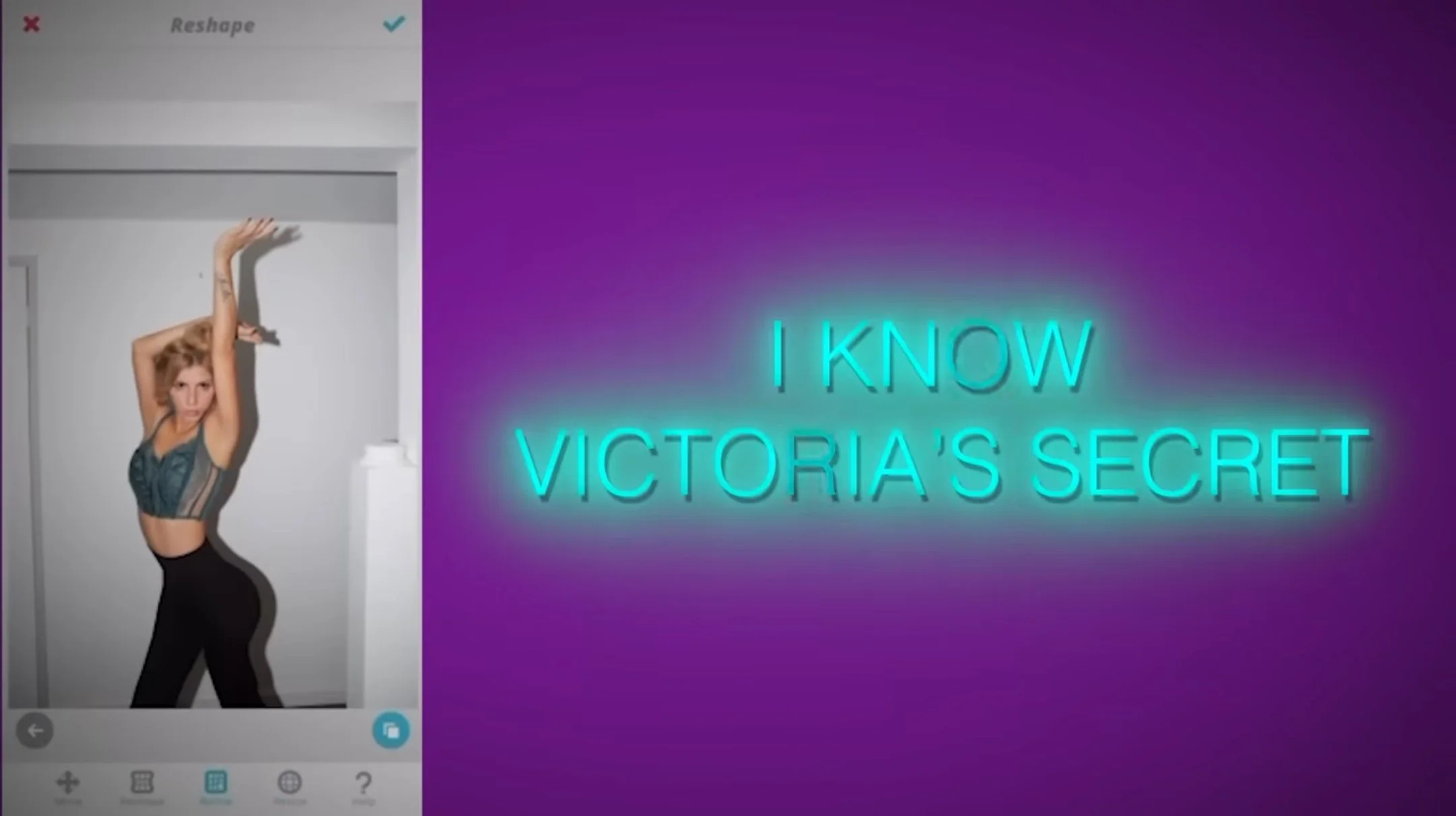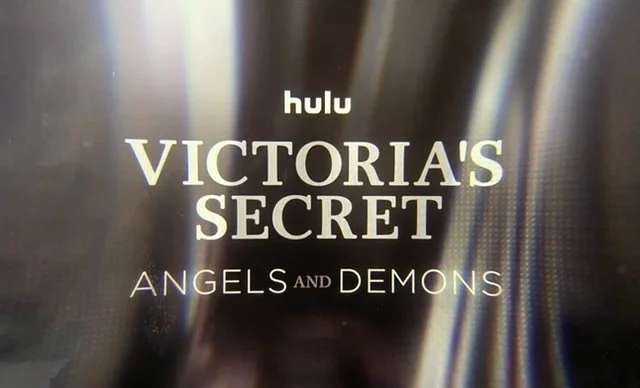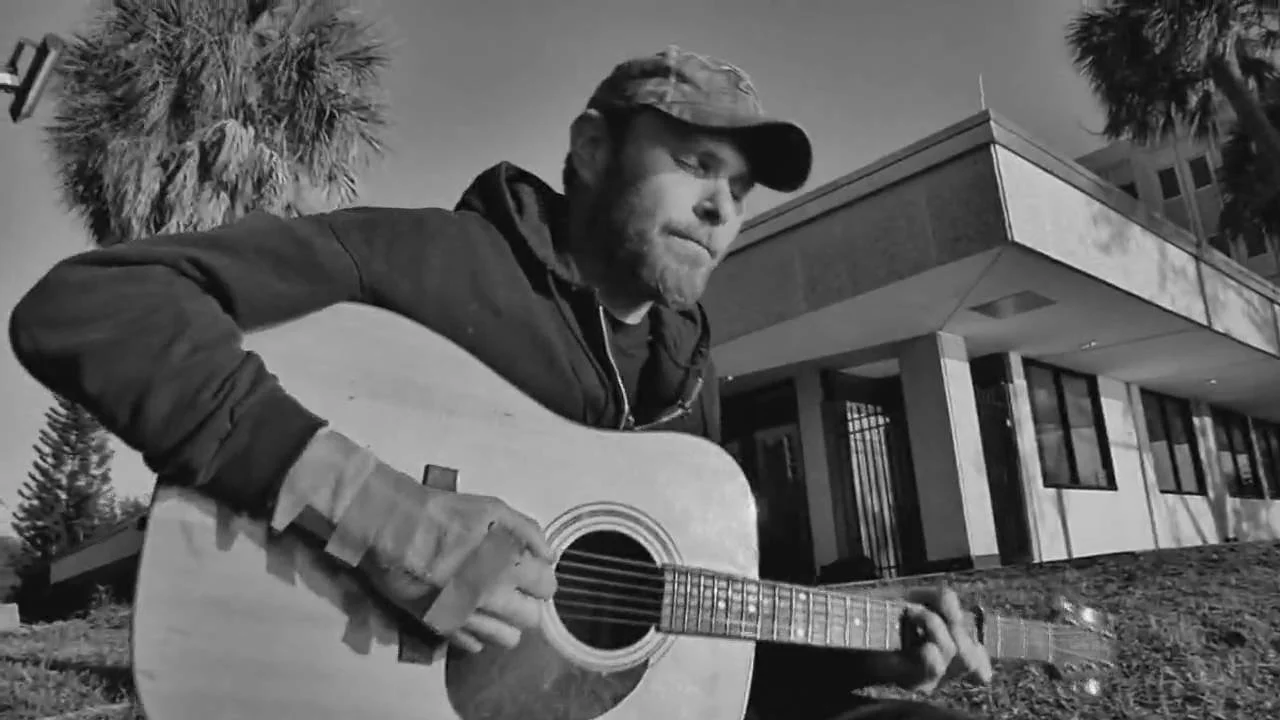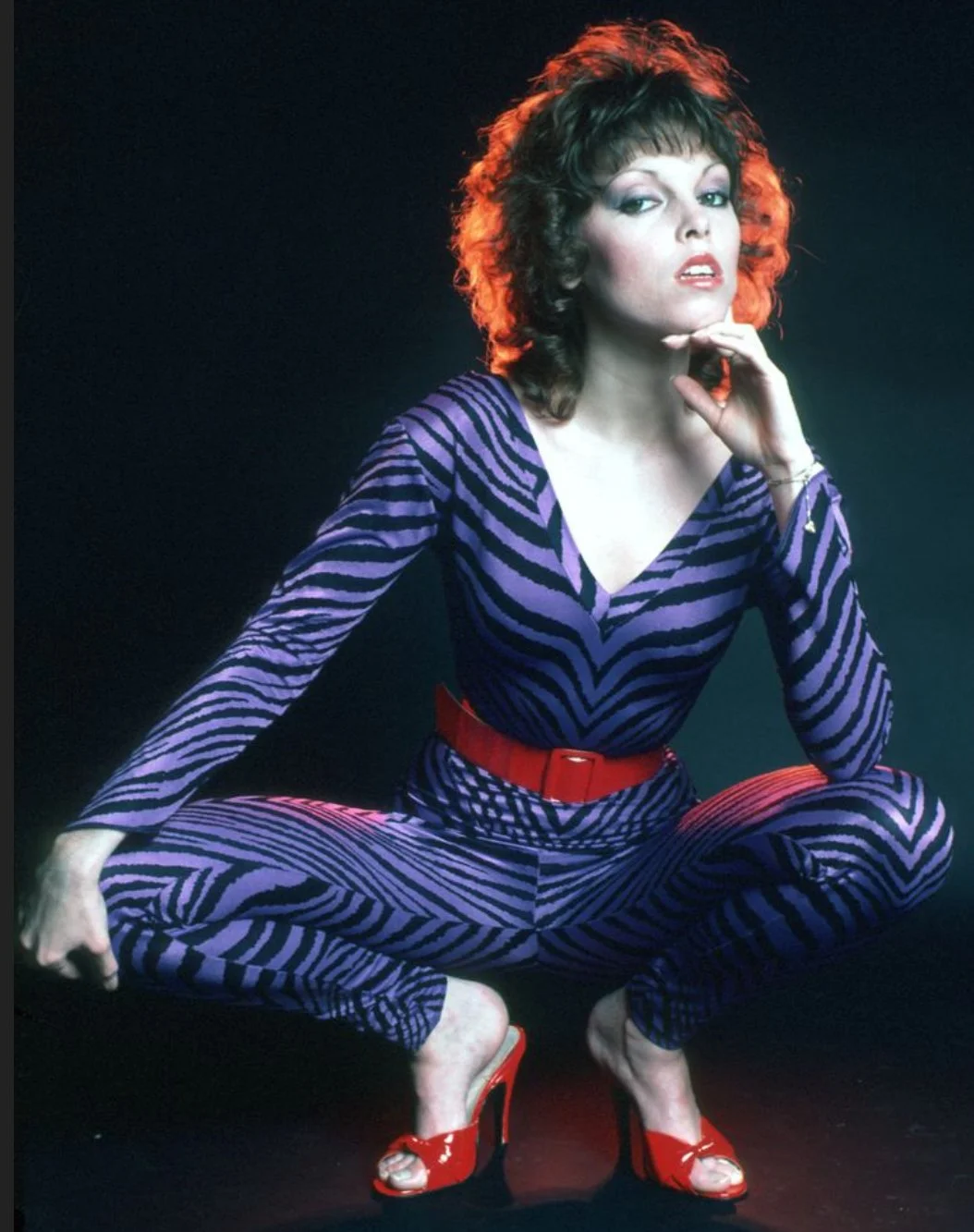Marketing masquerading as a movement.
After a lot of failure and second-guessing myself, I finally started getting a little bit of success with my writing. It felt like making a fire by rubbing two sticks together; you feel like an idiot until there’s a tiny spark, and then all your energy goes into feeding that spark.
For me, that meant revamping my wardrobe from the ground up — dress for the job you want and all that. And part of that meant revamping my underwear game. What can I say? There’s just a certain kind of confidence that comes from knowing you’re wearing nice underwear.
So I caved and went to Victoria’s Secret. I know, I know, Victoria’s friggin Secret, but come on, when it comes to cute underthings, it’s kind of the only game in town. There was a marked difference this time around though: The mannequins weren’t all gaunt, and this video was projected against the back wall, featuring models of different body shapes, ages, and even a trans woman. Hey, absolutely a step in the right direction! But also… the video clips were accompanied by this insufferable self-congratulatory text. Just in case you don’t want to watch a 1-minute advertisement for Victoria’s Secret (and who can blame you?), here’s an Instagram post in the same vein:
For decades, society and institutions—including ours—defined very narrow expressions that represented beauty, sexiness, and self-worth for women. The truth is the only person who can genuinely define a woman is herself. Now, we want to hear from you—tell us, what makes you uniquely #Undefinable?
My knee-jerk reaction was, “Oh, isn’t this just typical. Big corporation does 180-degree pivot trying to appear inclusive because that’s what sells these days.” Yeah, lemme go ahead and share my story so #Undefinable can reach “trending” status. Honestly, what could be more disingenuous than Victoria’s Secret doing an ad for body positivity?
I came home, started angrily writing this post, searched for “Victoria’s Secret” on YouTube to try to find the video… and found this instead:
If I could go back and tell myself when I was younger / I’d say, psst / I know Victoria’s Secret / Girl you wouldn’t believe / She’s an old man who lives in Ohio / Making money off of girls like me / Cashing in on body issues / Selling skin and bones with big boobs / I know Victoria’s Secret / She was made up by a dude
God, do young women these days know how good they have it? Back in my day, LFO’s (an acronym for “Lyte Funkie Ones”) hot summer hit “Summer Girls” included a line about how they “only date girls who wear Abercombie & Fitch”… a company owned by the very same “old man who lives in Ohio,” Les Wexner. (Abercrombie & Fitch, by the way, once openly stated, “we want to market to cool, good-looking people.”) Speaking of cool, good-looking people, here’s what LFO looks like these days… is what I wrote before I Googled them and found out two of the three are dead. Eeeesh…
Anyway, this summer’s hot summer hit was a fun, body-positive anthem by Jax, a young woman speaking from personal experience. I’m seriously so glad that girls growing up in the 2020s have pop culture options that aren’t actively trying to brainwash them into developing eating disorders. How far we’ve come!
The other thing that popped up when I searched “Victoria’s Secret” was this:
Victoria’s Secret: Angels and Demons is a Hulu documentary about the relationship between Wexner, the aforementioned old man who lives in Ohio… and Jeffrey god-damned Epstein. I suppose it shouldn’t surprise me that a guy who made billions of dollars off of an industry that created body image issues for generations of young women was friends with an actual monster.
Wexner jumped ship in 2020, retiring in Ohio with a net worth of nearly $6 billion. A year later, with sales plummeting and the #MeToo movement damaging the brand, the board of directors of Victoria’s Secret was replaced with women (well, except for one man). Typical. Old dude capitalizes off of creating mental illness for generations of young women and then peaces out with the profits, leaving a woman CEO to deal with decades worth of backlash.
Around the same time, the Victoria’s Secret Angels were replaced with the VS Collective: a more representative array of models, yes, but also rife with promises to “celebrate and empower individuality,” “drive systemic change,” and “unite and inspire.” Which are all really nice ideas, but… come on, get REAL. This is a corporation. Corporations exist to make money, not change.
But okay, let’s assume that the MBAs who inherited the Victoria’s Secret platform truly have the best interests of their customer base in mind. How do they go about making it right? Give reparations to everyone who developed an eating disorder during Les Wexner’s reign of terror (1982-2021)? 50 percent off for everybody who still has body dysmorphia from peeking at their mom’s Victoria’s Secret catalogues? Maybe tie Les Wexner to a wall and every girl who ever starved herself to look like a Photoshopped model can stand in line to tell him what he did… and then smack him as hard as she fucking can. Or just take all his money and disperse it evenly among all of us, whatever hurts more.
And that’s what really bothers me about this move toward body positivity: Victoria’s Secret isn’t doing enough to acknowledge the damage its brand has done over the last nearly four decades. Throwing out their board of directors is a start, but a few woke social media posts isn’t enough. We shouldn’t be so easy to forgive a company just because they’re offering us a thin veneer of representation. That would be like forgiving someone who abused us for years and years just because they said they’re turning over a new leaf. Victoria’s Secret got where they are today by peddling suffering. (God only knows what the conditions are like in their factories…) They don’t get to erase that just because they hired Paloma Elsesser and Megan Rapinoe.
One more thing: Why the need to sell me an identity? Isn’t that what got Victoria’s Secret in trouble in the first place? Les Wexner made his billions-with-a-B by selling the idea of sexy… a really pathetic, disgusting idea of sexy as defined by a pervy old man and his friend the pedophile. Now Victoria’s Secret is trying to sell empowerment. But in trying to market the idea of #Undefinable, they’re still creating a definition: of inclusivity, of womanhood, of justice. But who knows what kind of angry blog posts someone who got fucked up in the crossfire will write 40 years from now?
I’m not shopping for an identity, Victoria’s Secret. I just need new underwear.
